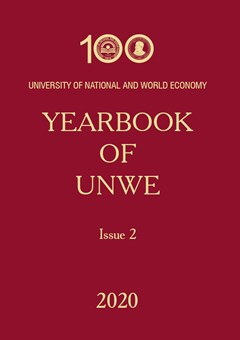Some Issues Regarding the Bulgarian Controlled Foreign Companies' Rules
Author: Stoycho Dulevski
Abstract
The controlled foreign company rules (CFC rules) are a relatively new regime in the Bulgarian domestic legislation. Their introduction in the Corporate Income Tax Act (CITA) is connected with the transposition of Directive 2016/1164. As EU Мember State, Bulgaria is obliged to follow and apply the European law including in the tax law. At the same time, based on the principle of sovereignty, Bulgaria has its own domestic policy.
The CFC rules are a symbiosis of law, economics and accounting. In the Bulgarian domestic legislation, they are characterized with numerous challenges both from a theoretical and a practical perspective. Proof of this is their several amendments and the issues concerning their implementation. Due to their new existence and rather controversial nature, there are only several articles in the Bulgarian literature that do not explicitly analyze in details this issue.
The main aim of the current study is to outline some of the disputable issues regarding the CFC rules from a Bulgarian perspective. For this purpose, the author makes some recommendations and shares some thoughts regarding the CFC’s future. The applied methods are the historical method, the method of systematic analysis, the formal-logical method and the comparative method.
JEL: K22, K34

